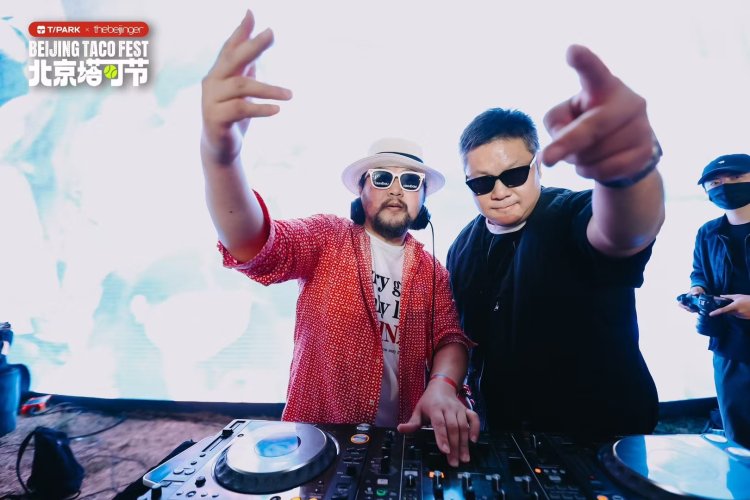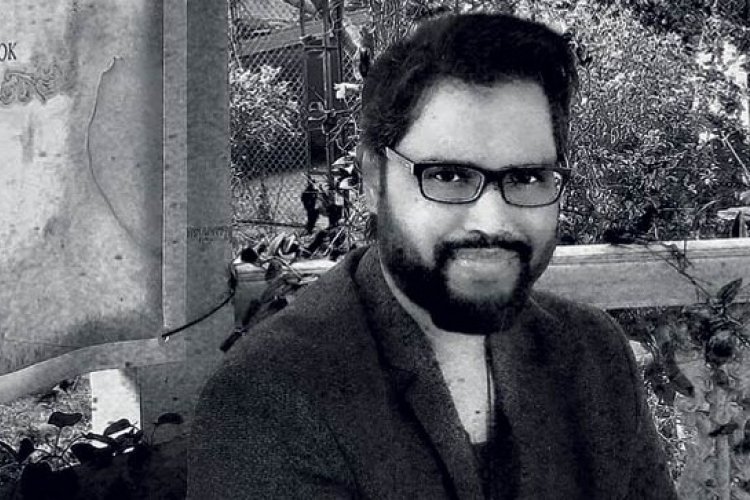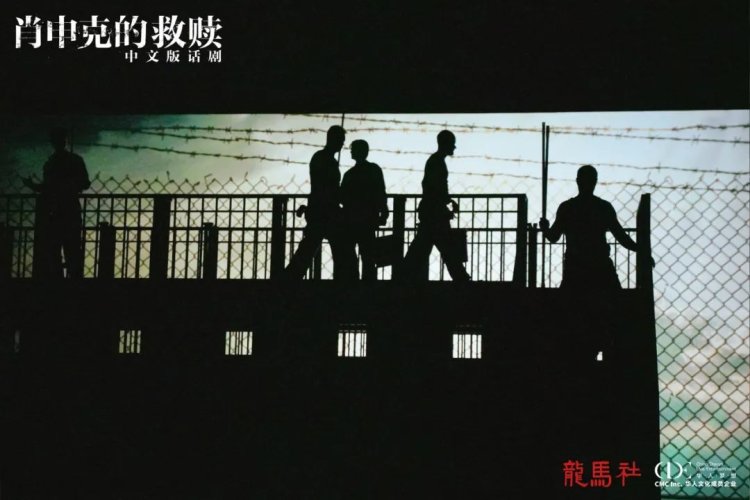We Lost the Sea Return to Their Heavy Roots to Soundtrack the End of the World
Epic is a term that gets thrown all too frequently when talking about post-rock. So much, in fact, that fewer and fewer bands can ever live up to the Herculean expectations that the description requires. But when used in relation to We Lost The Sea, most would have no qualms doubling down and upgrading "epic" to "apocalyptic."
The Sydney band has been shaking the post-rock and metal scenes for over a decade, captivating audiences with their sprawling, emotionally enthralling, and cinematic walls of noise that put listeners through the wringer, not unlike what the band has weathered on their own personal journey.
After the suicide of lead vocalist Chris Torpy in 2013, We Lost The Sea was forced to come to terms with their grief and evolve, relying solely on their instrumental storytelling chops instead. It's a lean that resulted in 2015’s critically acclaimed Departure Songs.
Now the six-piece band, which includes Matt Harvey (guitar), Mark Owen (guitar), Carl Whitbread (guitar), Nathaniel D'Ugo (drums), Mathew Kelly (piano/synth), and Kieran Elliott (bass) are back, with the even more dynamic Triumph & Disaster, an album that feels less about building and more about coming to terms with the end of the world.
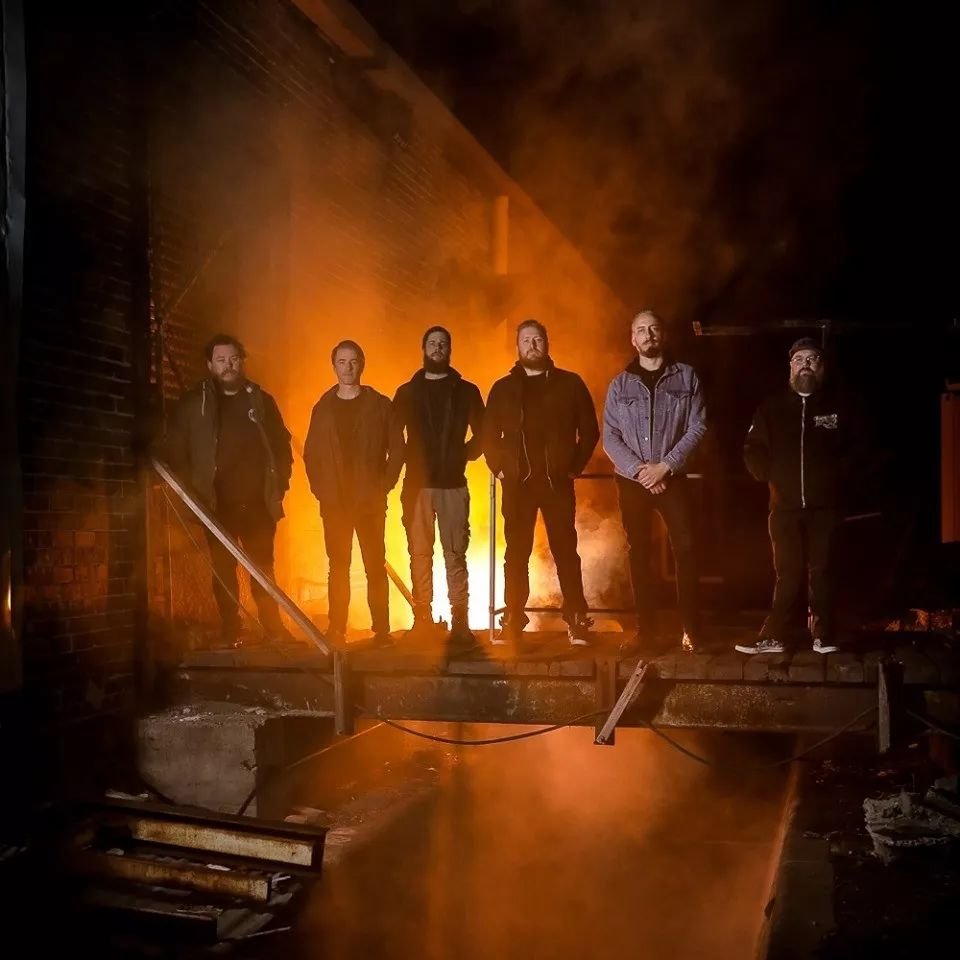
Told through the eyes of a mother relaying the story of the "towering juggernaut of power, failure, history, and death" that eventually leads to the Earth's demise, the album's a tour de force, managing to interweave moments of collective empathy and harrowing pain with ease. The resulting album is filled with profound beauty, with the smallest of details creeping through the void and giving hope even as the guitars come crashing down around them.
Before the band makes their way to Omni Space on Friday, Oct 25 courtesy of New Noise, we chatted with guitarist Matt Harvey on how politics are reflected in their music and the toll their songs have had on them over the years.
Art is finding more and more ways to address Earth’s impermanence and humanity’s hand in it all. Sometimes in brazenly blunt ways, sometimes with the subtlest of touches. In your case, it's through the lens of a children’s book, which is pretty damn bleak when you wrap your head around it. What was the idea behind this approach?
Good question. Art has always been apart of the social consciousness for many years. Centuries. Even the Romans had to clean anti-establishment graffiti off walls, as we do to this day. It’s no surprise that when the world is facing a global conflict or even a local one, artists mobilize and draw their influence from their surrounding stimulus. I’ve just traveled through Colombia, once regarded as the most violent country on earth, but which is now slowly trying to transform itself into something safer and calmer and artists are at the center of that movement.
Art is even more important now than ever. We have relied a lot on scientists to be the storytellers and spokespeople for our current global crisis and, unfortunately, most of them aren’t equipped to do that job as well. Also, people seem to ignore truth for their own made-up version of what suits them best. So facts and figures are falling on deaf and tired ears. We need artists, musicians, journalists, and creators to carry that message to people’s hearts and minds and leave a lasting impression. Real change.
Also, when people naively argue that politics don’t belong in music then they haven’t been paying attention. The two go hand in hand in most situations throughout history and will continue to do so. At least I hope so.
With instrumental music, we feel the art helps to tell our story as there are no lyrics to do that. It also extends and gives more depth to what we’re creating. We can take people on a journey and our fans can sit down and look through a booklet full of art and story to totally immerse themselves.
We chose to represent these huge themes through a children’s story to hit at the heart of the problem, as I mentioned above. A journey of a mother and her son through a dying world to say goodbye to all the color and beauty we’re leaving behind. I want people to cry, reflect, lament, and then act. Representing something actually too huge to comprehend by grounding it in something we can all relate to and hopefully leave a lasting impression.

"Towers," the first single off your new album, starts big and barely lets up through its 15 minutes. While it’s easy for listeners to get carried away by the emotions on display, do you ever catch yourselves being overwhelmed when performing live?
To be fair, 15 minutes is an average song length for us! When we play live it’s very much a “vibe”-based experience. If we’re feeling it and the audience is feeling it then the whole performance is lifted. I think once we’re used to the songs and the certain sections we know how to perform to those parts. We learn a lot each time we tour on how to be a better band in general so hopefully, it shows out front!
However, big songs like "Towers" or "Challenger" can be extremely draining sometimes due to a few things, especially the amount of emotion and energy that goes into playing something like that. Also, sometimes we really need to push ourselves to get into the right headspace to execute our specific dynamics. Triumph & Disaster songs are much more complicated and energetic to play than Departure Songs and there’s a lot of “pedalboard tap dancing” going on which keeps us alert!
With Triumph & Disaster, everything feels more urgent particularly in the guitars, which feel bolder than ever, almost as if you’re dipping into your post-metal roots once again. Going into this album did you feel it had to be bigger?
Yes. It’s almost an intentional reaction to the somber downbeat vibes of Departure Songs. It also fits the theme of the album but in general, it’s how we felt going into this record. We wanted to do something to break away from what we had done previously. We didn’t want to write a Gallant Gentleman part 2, we wanted to write something for ourselves and with a more urgent purpose. The riffs are busier and more immediate because that’s how they just started coming out. I had pictures and moods in my mind when writing to keep it “on theme” but even so, a lot of the guitar stuff is angrier.
The production is also a lot different thanks to our engineer, Greg Norman. He captured what we actually sound like in a room together. This album’s themes are more apocalyptic and heavy, with moments of beauty and hope as always. The playing and writing on this record pretty much represent that. "Towers" was an intentional choice to go as track one. We wanted to come out fully charged and screaming.
How long does a song take to form? When do you know you're at the finish line?
It takes a long time. Ages! Months, years, weeks. We are usually making changes right until the last moment. I think I was working on riffs as early as September 2017 for this record and we finished up the last guitar bits on the last day of mixing in April this year.
It usually begins in a bedroom at one of the guitarists' homes and then is brought into the studio to have everyone work on it. For this record, I wrote a lot of the initial stuff at home: riffs, sections, simple ideas, moods, some layers, then I’d record it and send it around. Then we all get together and jam it out and make it We Lost The Sea. There was a lot of pressure to write this album so there are dozens of ideas we put on the shelf or in a NOT GOOD ENOUGH folder on the computer. Perhaps we were too harsh and we should revisit those ideas. Some times we’d jam for four hours and come out with nothing. Other times we’d strike gold. We spent a weekend in a house on top of a hill overlooking a valley writing songs. It was the most productive we’d been since the start of this record. We’ll be doing that again. Free our minds from the distractions of real life!
We then record the jam in the room, then I’ll take it home and edit it slightly so we can all hear our bits. Then we’ll pull it to pieces, put it back again, shift it all around, discuss it at length, then probably get frustrated and tired and disappointed. Then we repeat that for months and months until we hit a moment of brilliance or an epiphany or just something serendipitous and then we know we’ve made the song.
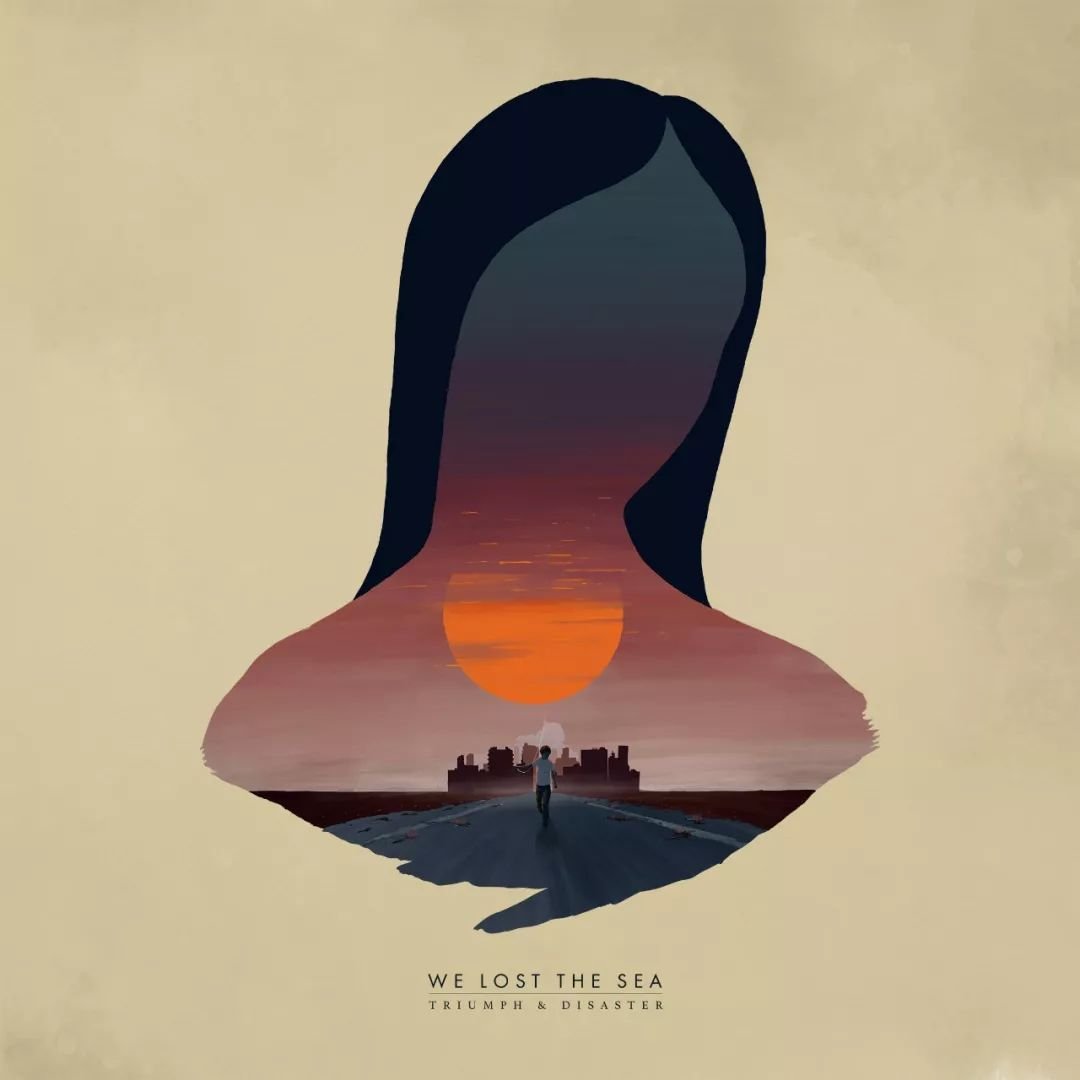
It took just about four years for Triumph & Disaster to come together – do you reckon we’ll have to wait as long for the next one?
We really hope not. A lot happened in those four years to us personally and as a band. We toured a lot as well. We’re not full-time musicians, we have full-time jobs and families and children and we also try to fit in some downtime where we can. If it takes another four years it’s not because we’re being lazy, that’s for sure! We’re touring solidly for October and November this year then we take December off. I want to start writing early next year.
It’s been a year and a half since your last stint in China. What memories do you hold of that tour? What are you most looking forward to checking out again?
Our last China tour was fantastic! We had the best time. The fans are really nice to us and the turnouts were huge for a band who’s never been there before. Jef and the team at New Noise are absolute legends and we can’t wait to get back there again! Some memories would be having a grand piano on stage at Shenzhen and then a mosh pit. Meeting fans and signing everything after the show. Hanging out in Wuhan. Taking bullet trains everywhere and eating way too much food. Bring it on!
Catch We Lost The Sea at Omni Space this Friday, Oct 25 at 9pm. Tickets are RMB 120 advance or RMB 150 on the door.
READ: Beijing's Spookiest Halloween Parties and Events
Photos courtesy of We Lost The Sea, Bradley Coomber


